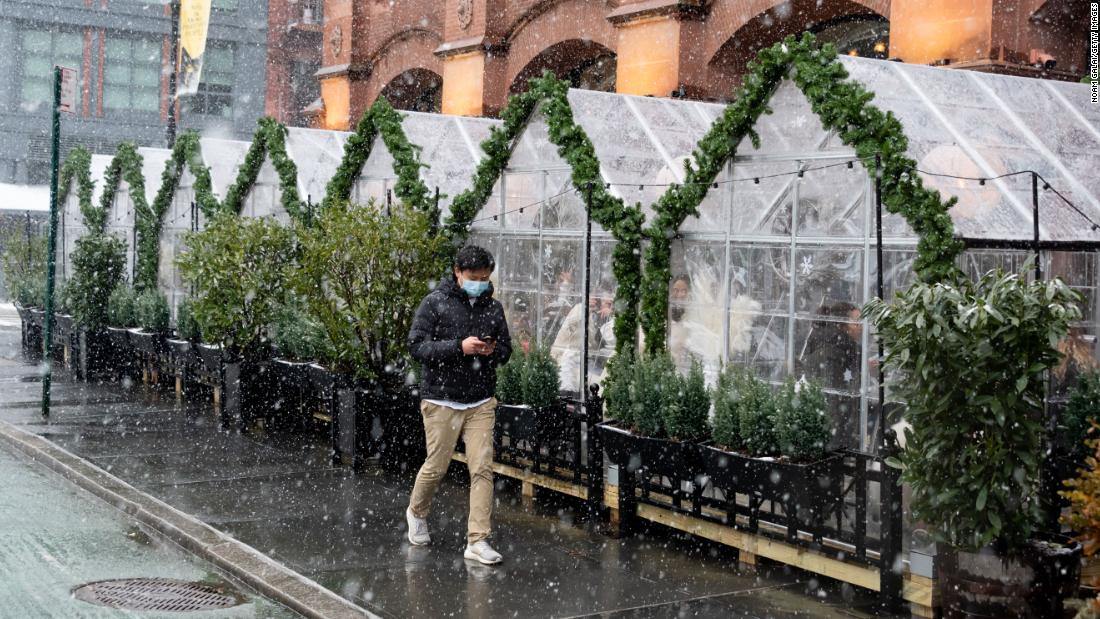
Wen, Baltimore City’s former health commissioner, added that the US is dealing with “something really potentially catastrophic, and we should redouble the measures we know work.”
According to CDC data updated Sunday, more than 690 cases of Covid-19 variants first spotted in the UK, South Africa and Brazil have been reported in the US.
Wen’s comments follow several state leaders’ announcements about easing Covid-19’s security measures.
“It is absolutely essential that we continue to take steps beyond vaccination to keep this under control,” Besser said. “The reason for this is that the more this virus is allowed to spread in our communities, the more we will see these variants spread.”
“And if the vaccines aren’t as effective against some of these variants, then we could see the benefits that we’re so excited about right now, we could see them reversed in a very short time.”
Vaccine challenges remain
And while officials are optimistic that vaccinations will continue to increase in the coming weeks, local and state leaders continue to face challenges, including the number of doses available and ensuring fair access to vaccines.
Los Angeles County health officials have announced that the county will only offer appointments for second doses of the vaccine starting Tuesday due to a supply shortage.
“Scheduling an appointment at this time is challenging due to the limited supply of vaccines the county receives on a weekly basis,” said county health officials in a press release. That will take the rest of the week.
The move comes to “make sure we have enough doses to guarantee a second dose for people who have already received the first,” said Barbara Ferrer, Los Angeles County’s director of health at a news conference on Monday.
In Kentucky, Governor Andy Beshear said in a statement Monday that the state would produce demographics every week on where the vaccine doses are going so they will be held “accountable” for fair access.
“Black and African American Kentuckians have received about 4.3% of the vaccinations to date for which we know the race of the person. That is unacceptable,” said the governor.
“About 1.1% of the vaccines, whose ethnicity is known, have gone to our Hispanic population – too low,” he added in a statement.
For Americans who are fully vaccinated, there could be more guidance on what to do and what not to do, Dr. Anthony Fauci said in a meeting on Monday.
“Existing guidelines still require you to wear a mask, you still need to distance yourself socially, but I think that’s going to change,” Fauci said. “We’re talking about this at the CDC level.”
What travel could look like
“What we know is that it is the right measure of international travel, people traveling to the US given some of those considerations. You know I’d say the domestic picture is very different, but you know the CDC is always evaluating what could be best done to keep Americans safe, ”Buttigieg said.
When asked if he supports the idea of requiring proof of a Covid-19 vaccination before air travel, Buttigieg said it is up to the CDC.
“That’s not a step that has been taken, and again, the CDC is really up front in deciding what the right measures will be,” Buttigieg said. “Right now, the focus, especially at a time when most Americans haven’t had a vaccine, haven’t had access to a vaccine, is to make sure that while we get those vaccinations to everyone we can, we” reiterate the enforce measures that we know are available and work, such as wearing a mask. “
More than 2.9 million children have had Covid-19
Covid-19 cases in children account for nearly 13% of all US cases, the report added.
In the week between Jan. 28 and Feb. 4, more than 117,000 new childhood infections were recorded, the report added, while in the two weeks ending Feb. 4, there was a 10% increase in Covid-19 cases in children.
“However, there is an urgent need to gather more data on the longer-term impact of the pandemic on children, including ways in which the virus may harm the physical health of infected children in the long term, as well as the emotional and mental health effects” it added.
Jamiel Lynch, Jen Christensen, Andrea Diaz, Lauren Mascarenhas, Rebekah Riess, Sarah Moon, Steve Almasy, Brian Vitagliano, Hollie Silverman and Haley Brink contributed to this report.


